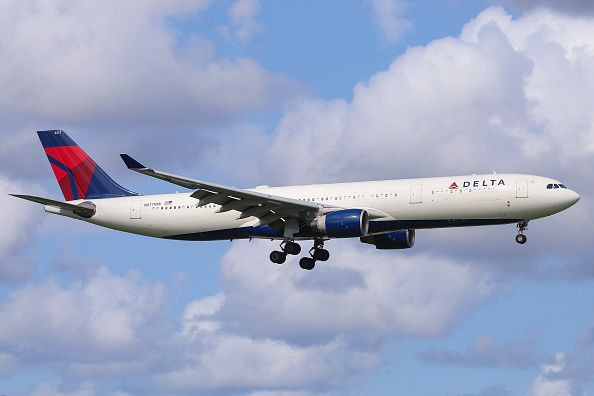The Brewing Airline Battle Over China Flights Is Truly Absurd

The three largest U.S. airlines — American Airlines (NASDAQ:AAL), Delta Air Lines (NYSE:DAL), and United Continental (NYSE:UAL) — are gearing up for another fight about international flying rights. This time, they will be competing for some of the few remaining route authorities that permit U.S. airline service to Beijing and Shanghai.
This article originally appeared in The Motley Fool.
The bizarre thing in this case is that none of the three airlines is interested in adding new flights to China until June 2020. Yet this could be a bitter fight, as American, Delta, and United all recognize the long-term strategic importance of flying to China and want to make sure they can add flights to the market when it becomes profitable to do so.
Delta and United propose new China flights
Late last month, Delta Air Lines filed an application for a route authority enabling daily service to Shanghai from Minneapolis-St. Paul starting around June 1, 2020. This would continue a buildup in international service at one of Delta's key hubs.
Delta has historically used its Detroit hub as its main gateway for flights to Asia from the East Coast and Midwest. However, its hub at Minneapolis-St. Paul International Airport has nearly as many daily departures and actually serves more domestic destinations. Thus, adding nonstop service to Asia from Minneapolis-St. Paul will facilitate more connecting itineraries.
In April, Delta will begin flying between Minneapolis-St. Paul and Seoul. It will be able to offer numerous connections beyond Seoul thanks to its joint venture with Korean Air, which has its main hub there. Delta also has a partnership with China Eastern Airlines — which has its main hub in Shanghai — so the proposed Minneapolis-St. Paul-Shanghai route would have similar benefits.
Less than two weeks after Delta revealed its plans for a new Shanghai route, United Airlines announced that it also wants to expand service to Shanghai. It would like to add a second daily flight to its existing Newark-Shanghai route in June 2020. This would provide more schedule options for New York-area travelers while enabling more connecting opportunities.
American Airlines wants to hold on to its rights in China
Currently, there are only enough available frequencies under the U.S.-China aviation agreement to support one additional daily flight to Shanghai. However, American Airlines recently suspended its routes from Chicago to Beijing and Shanghai for an indefinite period. In theory, that would allow federal regulators to give both Delta and United the go-ahead for their proposed Shanghai flights.
Yet American Airlines has requested a "dormancy waiver" that would allow it to hold on to its China route authorities for at least one year. American says that this would enable it to quickly resume the Chicago-China flights if market conditions improve.
Perhaps more importantly, if American Airlines can maintain all of its China route authorities, that would limit its rivals' ability to grow in that strategically important market. Indeed, given the scale of its losses on its routes from Chicago to China, it seems highly unlikely that American Airlines would want to resume either route within the next year.
Why nobody is eager to add China flights right now
The recent proposals by Delta, United, and American have put the Department of Transportation (DOT) in a strange situation. American Airlines wants to hold on to two unutilized route authorities until November 2019. Meanwhile, Delta Air Lines and United Airlines are urging the DOT to reject American's request so that they can begin new flights to Shanghai seven months later, in June 2020.
Delta and United both cited the difficulty of obtaining acceptable takeoff and landing slots in Shanghai in asking the DOT to grant them route authorities for flights that won't begin for 19 months. Yet in an objection to their proposals, Hawaiian Holdings noted that such a move would be unprecedented. Typically, the DOT has given airlines three to six months to start service -- and required them to demonstrate their inability to obtain slots to qualify for a waiver of the start-up date provision.
Indeed, slot availability isn't the only reason why Delta and United want to delay starting their proposed Shanghai flights. Over the past year, unit revenue trends have been much stronger in the transatlantic market than for Asia flights, making Europe a more attractive region for growth.
Still, China is a key long-term growth market for the U.S. legacy carriers. With a limited number of route authorities available for flights to Beijing and Shanghai, it's understandable that all three airlines want to maintain as many route authorities as possible. However, in the short term, it's not the most profitable place to fly, so airlines are looking to "warehouse" unwanted frequencies for a year or more.
Now, it is up to the DOT to adjudicate this unusual situation.
Adam Levine-Weinberg owns shares of Delta Air Lines and Hawaiian Holdings. The Motley Fool owns shares of Delta Air Lines. The Motley Fool recommends Hawaiian Holdings. The Motley Fool has a disclosure policy.





















